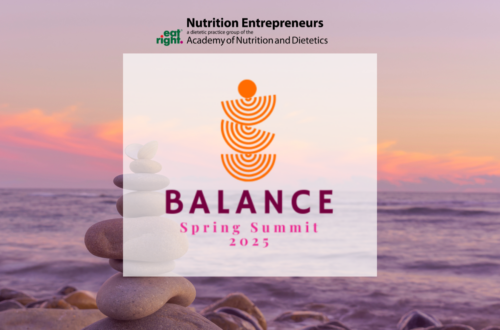
A Closer Dive into the “Food is Medicine” Debate
What we eat has profound effects on our health and well-being. Research shows that dietary habits can influence the risk of developing various diseases; while some foods may contribute to chronic health conditions, others offer therapeutic and protective benefits. This has led many to advocate for the concept of “Food is Medicine,” emphasizing nutrition’s potential to prevent and manage disease.
But what about when conventional medicine is necessary? Are we asking patients to choose between food and pharmacology? Let’s take a closer look at the “Food is Medicine” debate to explore how nutrition and traditional medicine can complement each other in supporting health outcomes.
What is the "Food is Medicine" Concept?
The “Food is Medicine” concept promotes the idea that food can be a powerful tool in preventing, managing, and even reversing chronic diseases. This approach suggests that a nutrient-dense diet, rich in whole foods like fruits, vegetables, whole grains, and lean proteins, has therapeutic benefits that can support overall health and mitigate risk factors for conditions such as heart disease, diabetes, and obesity.
According to a publication in BMJ, the peer-reviewed journal of the British Medical Association, “one in every five deaths globally is attributable to suboptimal diet, more than any other risk factor, including tobacco.”
In Support of "Food is Medicine"
Advocates of “Food is Medicine” push for integrating nutrition into healthcare by offering initiatives like “produce prescriptions” and medically tailored meals for patients with specific health needs. Programs following this approach aim to improve patient outcomes, reduce healthcare costs, and promote a holistic view of health.
Nutritious Diets Protect Against Disease
A nutritious diet is a powerful tool for protecting against various chronic diseases. For example, the Mediterranean diet has been linked to a reduced risk of cardiovascular disease and improved metabolic health. High-fiber diets support blood sugar regulation, lowering the risk of type 2 diabetes. Antioxidants found in colorful fruits and vegetables may also help protect cells from oxidative stress, a factor in cancer development.
Public Policy & Food Insecurity
There is strong evidence that links food insecurity to adverse physical and mental health outcomes. Research consistently shows that food insecurity is associated with increased healthcare utilization and costs, as individuals lacking access to nutritious food are more susceptible to chronic conditions like diabetes, heart disease, and depression.
This underscores the need to address food insecurity to improve health outcomes and reduce healthcare spending. Public policy advocates believe that “Food is Medicine” interventions—such as medically tailored meals, medically tailored groceries, and produce prescriptions—are not only effective but also scalable and replicable across different populations.
Financial Support & Insurance
Under the “Food is Medicine” model, there is the potential for insurance to cover medically necessary food. Some insurance providers and Medicaid programs have started to explore coverage for medically tailored meals and produce prescriptions for individuals with conditions like diabetes and heart disease. These initiatives aim to provide targeted nutritional support to improve patient outcomes and reduce healthcare costs.
However, coverage for general nutritious groceries remains uncommon. Insurers typically restrict coverage to food directly related to treating specific diagnosed conditions, limiting access to everyday nutritious food under most insurance plans.
The Argument Against "Food is Medicine"
Critics of the “Food is Medicine” movement argue that food cannot replace conventional medical treatments. While nutrition is crucial for health, it is not a standalone solution for medical issues. Equating food to medicine could imply that individuals must choose between nutrition and medical interventions to treat their diseases.
Medicine is Medicine
Medicine is extremely powerful. Prescribed medications, surgeries, or other interventions essential for treating conditions like infections, cancers, autoimmune diseases, and advanced diabetes. Medical treatments are grounded in rigorous clinical trials and standardized dosing, allowing healthcare providers to offer proven, measurable, and reliable outcomes.
Social Determinants of Health
Critics of the “Food is Medicine” movement argue that the concept can inadvertently blame individuals for health conditions by focusing too heavily on diet while overlooking the broader social determinants of health.
Emphasizing food as a primary means to prevent or manage illness risks implying that individuals could control their health through diet alone, which ignores significant factors like genetics, socioeconomic status, and environmental influences. These determinants often play a larger role in health outcomes, affecting individuals’ access to nutritious foods, healthcare, and other resources essential for well-being.
Key Takeaways
While both supporters and critics of the “Food is Medicine” movement present compelling arguments, these perspectives underscore the importance of a balanced approach that values both nutrition and conventional medicine as complementary tools for improving health, advocating for policies that address dietary needs while also ensuring access to essential medical care.
- Food as medicine – academy of nutrition and dietetics foundation. Accessed October 26, 2024. https://www.eatrightfoundation.org/resources/food-as-medicine.
- Downer S, Berkowitz SA, Harlan TS, Olstad DL, Mozaffarian D. Food is medicine: actions to integrate food and nutrition into healthcare. BMJ. Published online June 29, 2020:m2482. doi:10.1136/bmj.m2482
- Moran AJ, Roberto CA. A “food is medicine” approach to disease prevention: limitations and alternatives. JAMA. 2023;330(23):2243-2244. doi:10.1001/jama.2023.24472
- Berkowitz SA, Seligman HK, Meigs JB, Basu S. Food insecurity, healthcare utilization, and high cost: a longitudinal cohort study. The American journal of managed care. 2018;24(9):399. Accessed October 27, 2024. https://pmc.ncbi.nlm.nih.gov/articles/PMC6426124/
- How dietary factors influence disease risk. National Institutes of Health (NIH). March 13, 2017. Accessed October 27, 2024. https://www.nih.gov/news-events/nih-research-matters/how-dietary-factors-influence-disease-risk
- Rahaman MM, Hossain R, Herrera‐Bravo J, et al. Natural antioxidants from some fruits, seeds, foods, natural products, and associated health benefits: An update. Food Science & Nutrition. 2023;11(4):1657. doi:10.1002/fsn3.3217
- Ezeokoli A. Food is medicine approaches to address diet-related health conditions. Center For Health Law and Policy Innovation. February 29, 2024. Accessed October 27, 2024. https://chlpi.org/news-and-events/news-and-commentary/health-law-and-policy/food-is-medicine-approaches-to-address-diet-related-health-conditions/


You May Also Like

Debunk the Junk: The “Keto” Diet
March 15, 2019
3 Key Insights from the Nutrition Entrepreneur Summit
March 11, 2025
